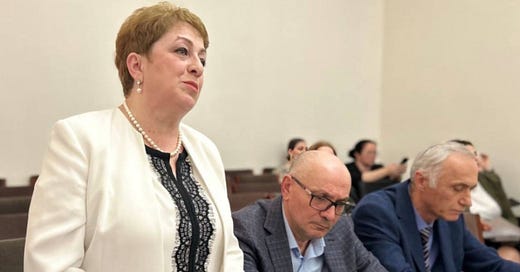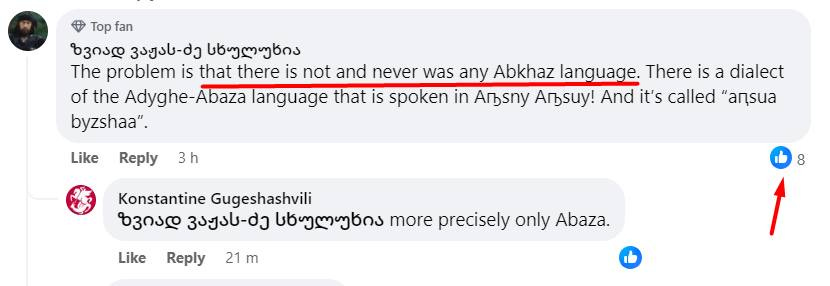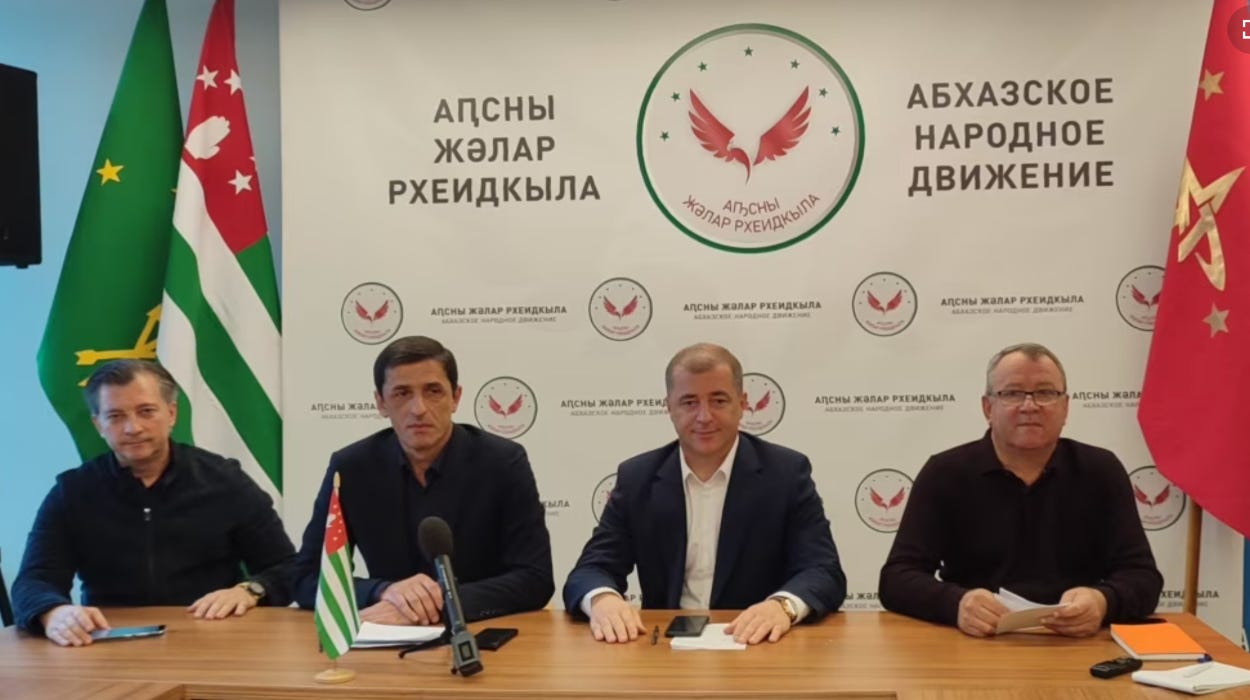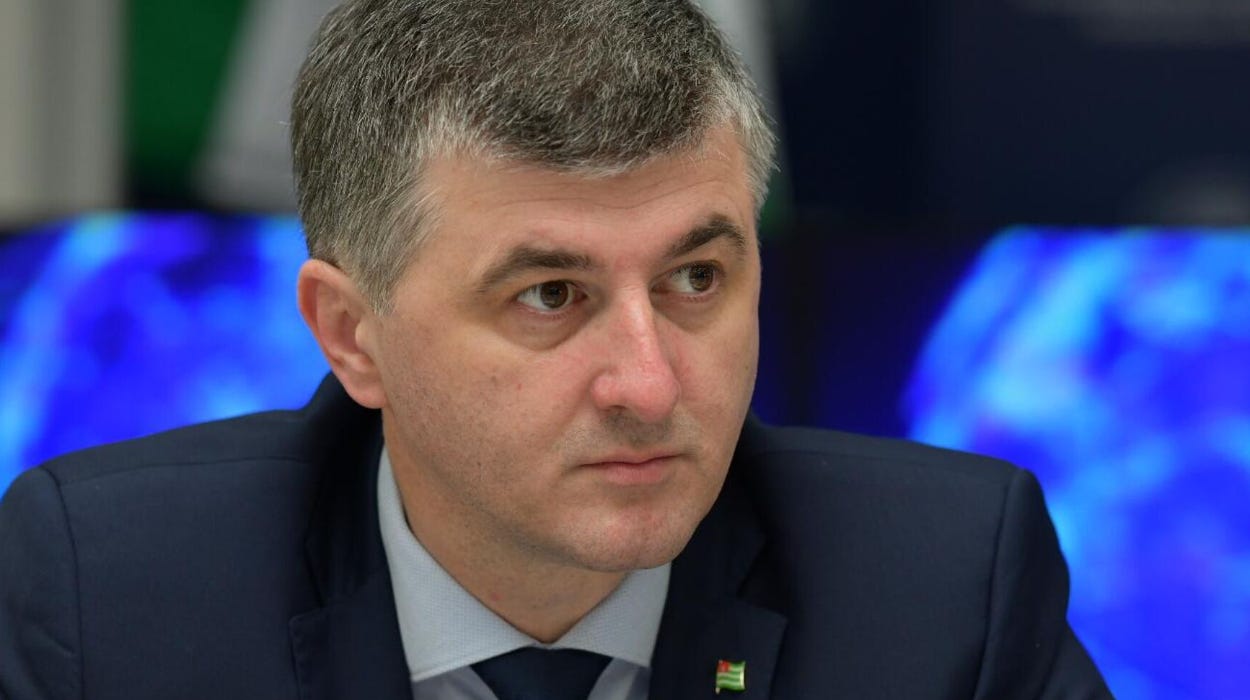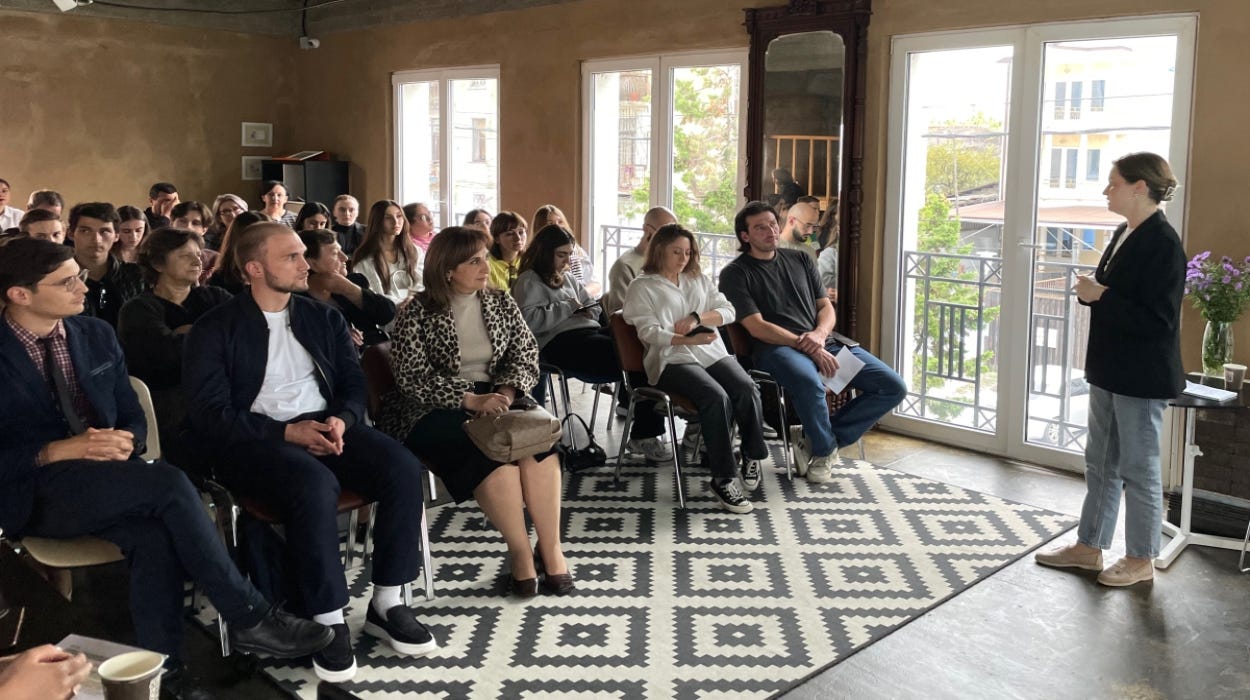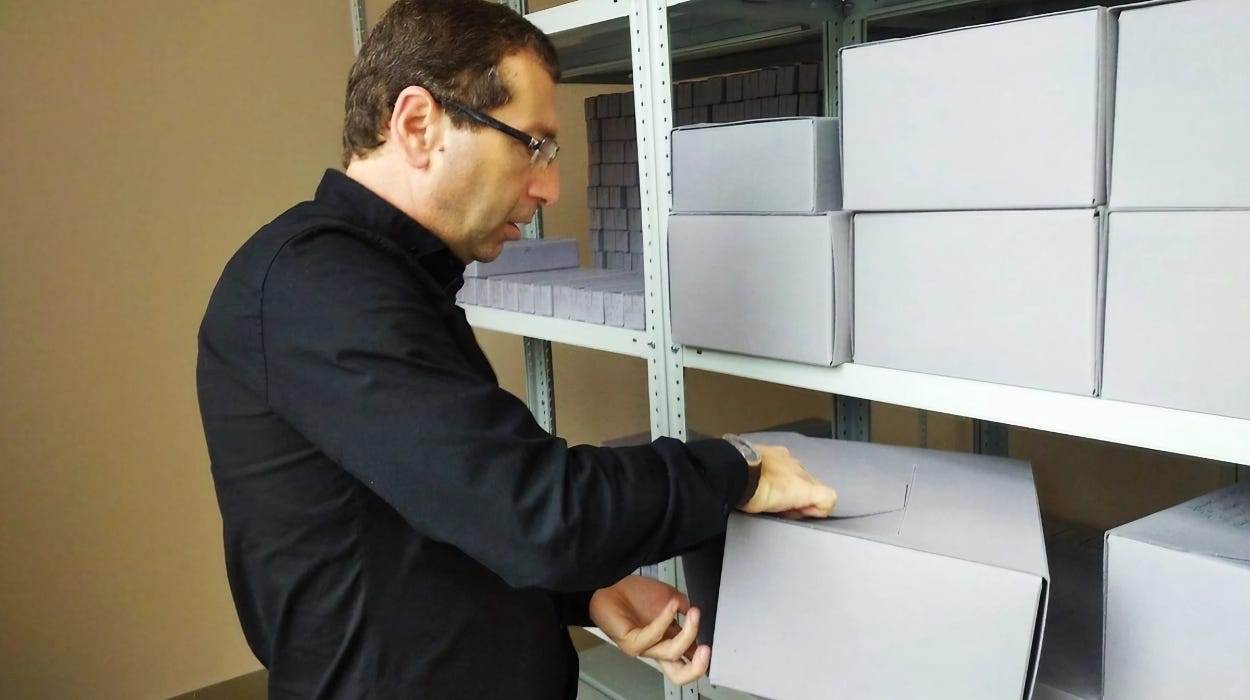Efforts Intensify to Preserve the Abkhazian Language in the Republic of Abkhazia
October 27 is the Abkhazian Language Day
SUKHUM / AQW'A — 27th October, Abkhazia - On the occasion of the Day of the Abkhazian language, Gunda Kvitsinia, the head of the State Department for State Language Policy, emphasised that every day should honour the Abkhazian language and not just once annually.
Kvitsinia expressed concerns about the dwindling use of the Abkhazian language due to a strong influence from the Russian language and associated challenges. She believes these issues have also affected the country's national identity and demographic structure. She commented, "Our small population, strong influence of the Russian language and all related problems have led to this state of affairs with the Abkhazian language."
However, under Kvitsinia's leadership, the State Department for State Language Policy, established in February 2023, has been proactive in its approach to promote the language. Since its inception in May, the department has developed a comprehensive programme to encourage the study and usage of Abkhazian. Kvitsinia stressed the importance of residents understanding the state language, even at a basic level. To achieve this, the department has initiated accelerated language courses and plans to open language learning centres across the republic by 2024.
Meaanwhile, as usual, numerous Georgians mocked and demeaned Abkhaz history and culture on social media. Here some of these remarks were in response to ApsnyPress's post about Abkhaz Language Day.
Where ignorance reigns, folly is the crown...
Opposition Leaders Decry Lack of Representation in Abkhazia's Public Chamber
SUKHUM / AQW'A — A briefing held by opposition leaders in Sukhum recently spotlighted their dismay over the absence of any of their representatives in the Public Chamber of Abkhazia. The leaders criticised the body for being dominated by individuals with allegiances to the ruling authorities, thereby compromising its intended role as a neutral forum for dialogue and resolution of the ongoing political crisis in the republic.
Beslan Kvarchia's recent departure from the Public Chamber, only to be replaced by lawyer Frida Lazba, further amplified the opposition's concerns. They emphasised that the continued lack of representation reaffirms the narrative that only those favoured by the authorities are granted seats in the Chamber.
Temur Gulia, the leader of the "Aruaa" public movement of war veterans, lamented the rejection of their delegate candidates, noting that this recent development implies the monopolisation of state institutions by the current government. He stressed that the Public Chamber, previously the beacon of free expression and political resolution in Abkhazia, has now been entirely subjugated.
Adgur Ardzinba, Chairman of the "Abkhazian People's Movement," expressed his conviction that the authorities' decisions, including controversial ones regarding state property in Pitsunda, do not reflect the will of the majority. He also warned against the potential escalation of "street political squabbles" due to the exclusion of opposition voices from the Chamber.
Irakli Tuzhba: Abkhazia Determined to Persist in Geneva Discussions Despite Obstacles
SUKHUM / AQW'A — In a recent interview published by the "Apsny" Social Information Agency, Deputy Foreign Minister Irakli Tuzhba highlighted the significance of the Geneva discussions for Abkhazia.
Tuzhba emphasized that the Geneva discussions represent the sole internationally recognised platform where the Republic of Abkhazia engages equally alongside representatives from the world's most authoritative international organisations and leading nations that shape contemporary international politics. The International Geneva Discussions have been ongoing for a period of 15 years.
"Regrettably, over the recent years, we've encountered challenges in arriving at a consensus on certain political matters, especially concerning the international guarantees of non-use of force by Georgia. This paramount agenda item has remained static for an extended period. Currently, there aren't any signs suggesting a potential change in this status quo. Nevertheless, even with the standstill in political deliberations, there have been instances of productive collaboration within the purview of the International Geneva Discussions. Through these discussions, we've been able to address certain humanitarian challenges, resulting in our republic garnering aid and international endorsement," commented Tuzhba.
Abkhaz Desk Recycles Over a Ton of Plastic in a Year
SUKHUM / AQW'A ― The public organisation "Abkhaz Desk" recently announced the culmination of its year-long environmental initiative, "Save the World from Garbage." The program, launched last November in Abkhazia, has made notable strides in promoting eco-friendly practices.
A panel discussion was convened in Sukhum on October 25th to discuss fostering an ecological lifestyle in Abkhazia. The session saw participation from prominent environmentalists, eco-activists, and public figures from the republic.
Highlighting their achievements, the Abkhaz Desk team shed light on the success of their environmental endeavours. As an innovative approach, they installed two vending machines in Sukhum, designed to collect plastic bottles. In exchange for the bottles, these machines dispense food for homeless animals. Additionally, in collaboration with the State Committee on Youth and Sports, Abkhaz Desk organised Abkhazia's maiden plugging race on Sinop beach. This event, blending fitness and environmental conservation, had over 100 participants who collectively gathered more than 600 kg of litter.
Preserving History: An Interview with Dmitry Enik
ApsnyPress | In 2014, the State Archive Department of Abkhazia underwent a major renovation under the Investment Programme. Storage rooms were furnished with state-of-the-art equipment, and a fire protection system was put in place.
Dmitry Enik, Deputy Head of the State Archive, spoke to an ApsnyPress correspondent, Alexey Shamba, about the operations of the archive department, its challenges, achievements, and future aspirations. He believes that the primary issue is the chronic underfunding and the problems stemming from it.
– Dmitry, what purposes does the equipment serve?
Archival documents, being paper, are a delicate material. Excess humidity can expose them to mould. Prolonged exposure to bright light can degrade inscriptions. Even temperature fluctuations can harm the documents' integrity. Hence, there's a necessity for equipment that regulates both temperature and humidity. Only modern, albeit expensive, equipment can truly meet these needs. Creating the optimal storage conditions for these documents isn't merely a luxury for us, it's a pressing need.
– Given that many budget organisations face funding shortages, what risks does this pose for your department?
At first glance, one might assume we are without issues. The building has been refurbished, and the requisite equipment is in place. It might seem like everything is set for smooth operation. However, the reality is different. The equipment, though installed nine years ago, hasn't been serviced ever since. Thus, there's no telling when it might malfunction, especially at a critical juncture.
– Could you illustrate such a predicament?
Consider our fire protection system. Naturally, water or foam isn't the solution—they would damage the paper. That led to the design of a unique system. When there is a spike in temperature, a pyrotechnic cartridge is activated, setting off a mechanism that releases a special dust. This dust shields the paper from fire. While the documents would subsequently need dusting off, the crux of the matter is, they are preserved. But what if this system fails and the entire archive is engulfed in flames? It's scary to even imagine it. We remember with horror every day how many unique documents were destroyed by Georgian guards during the war.

